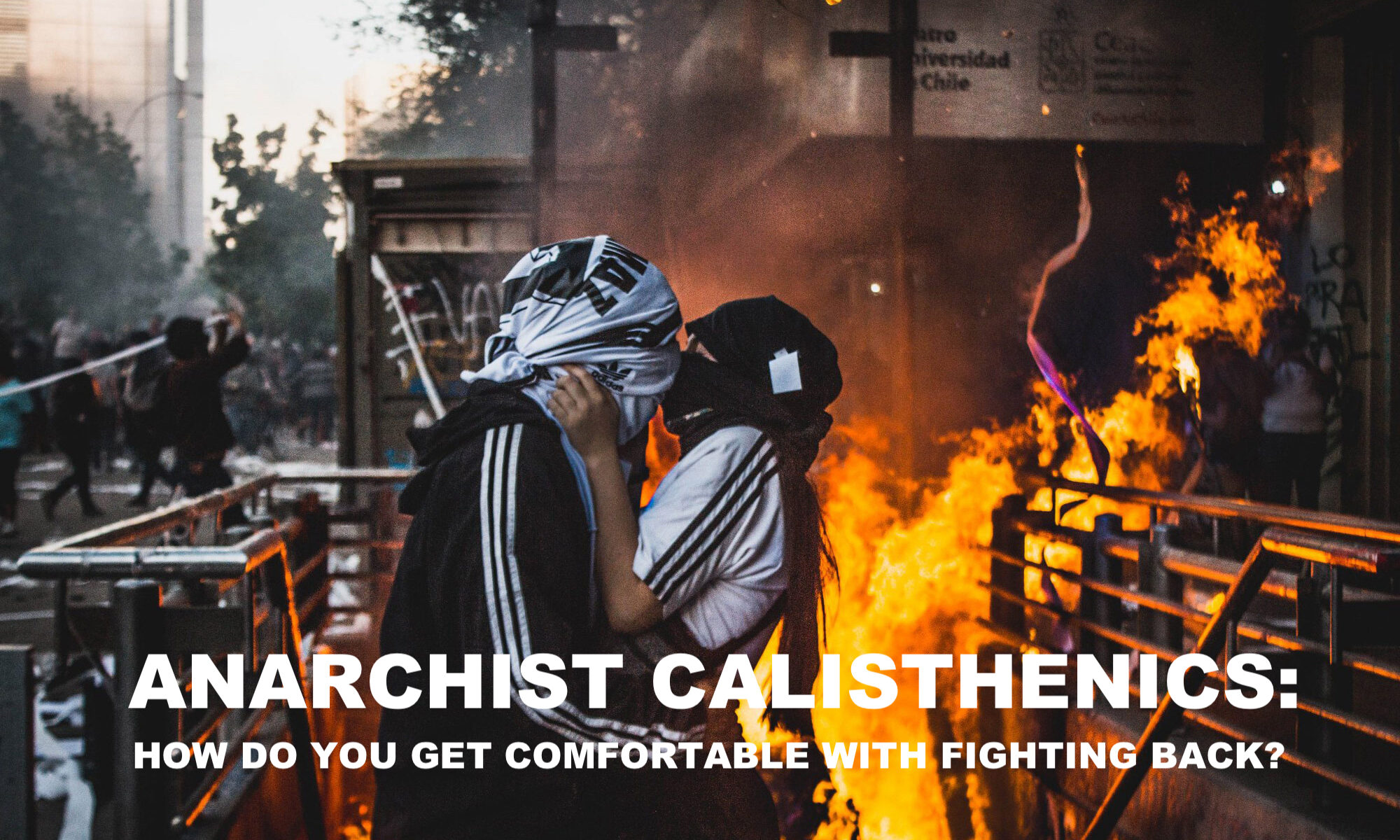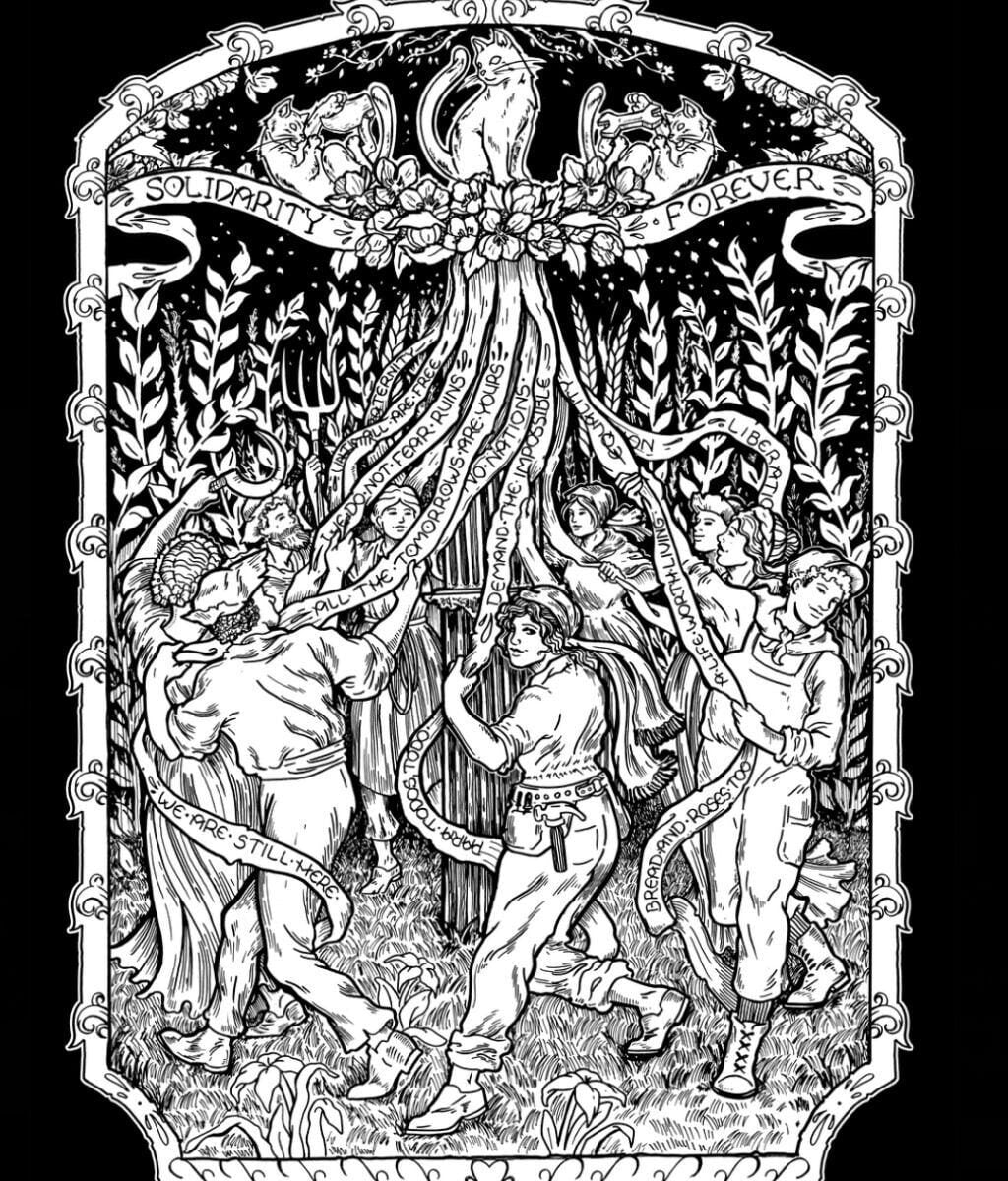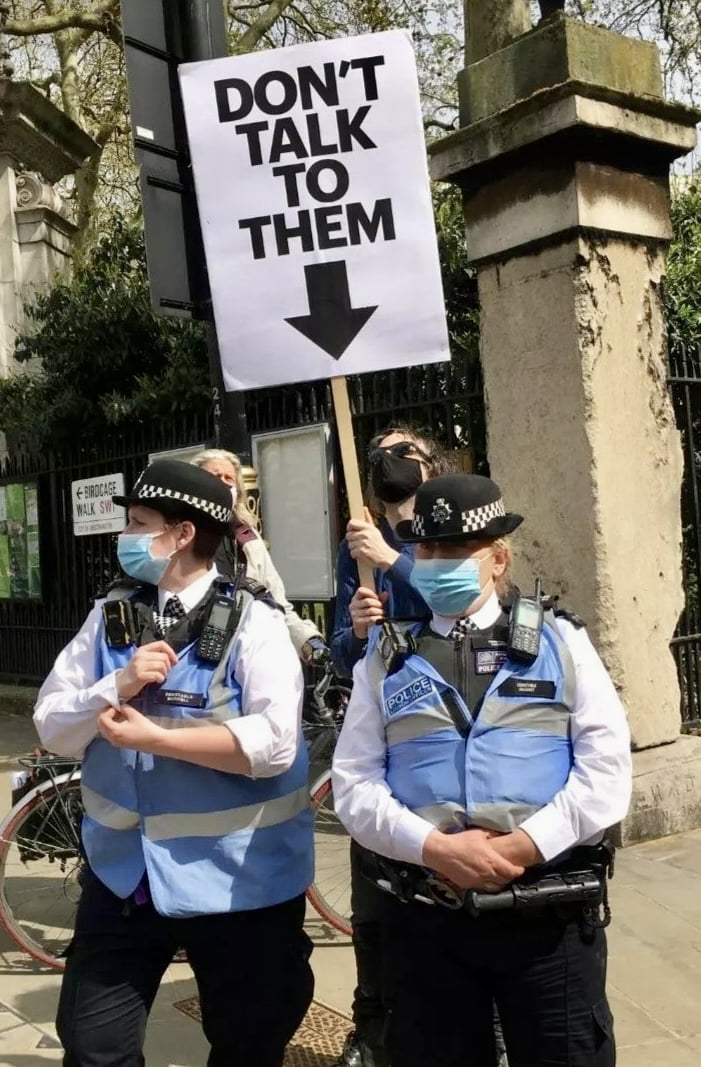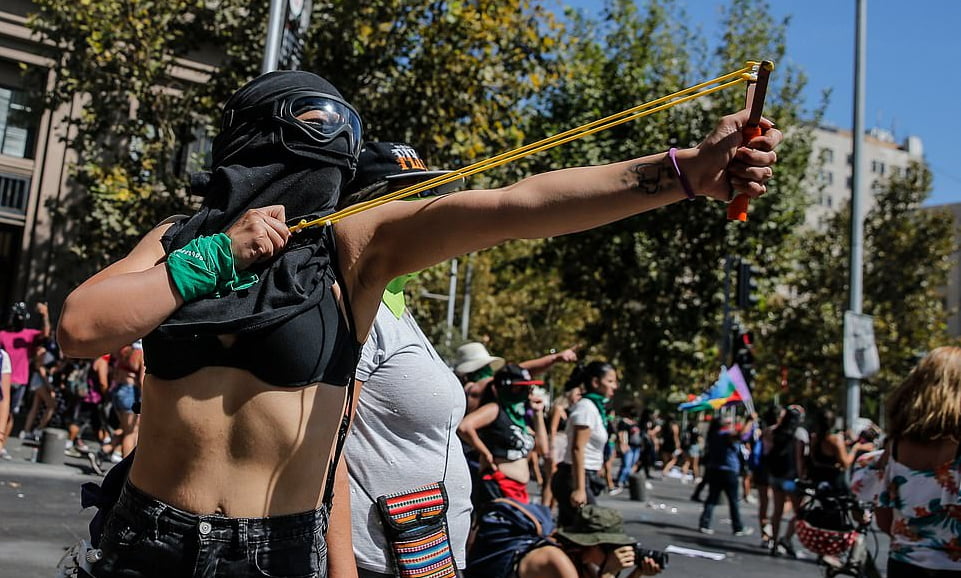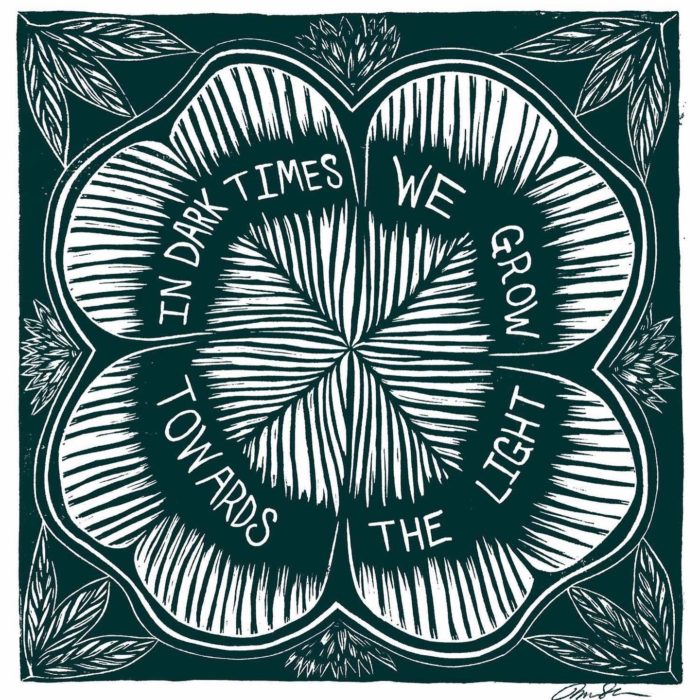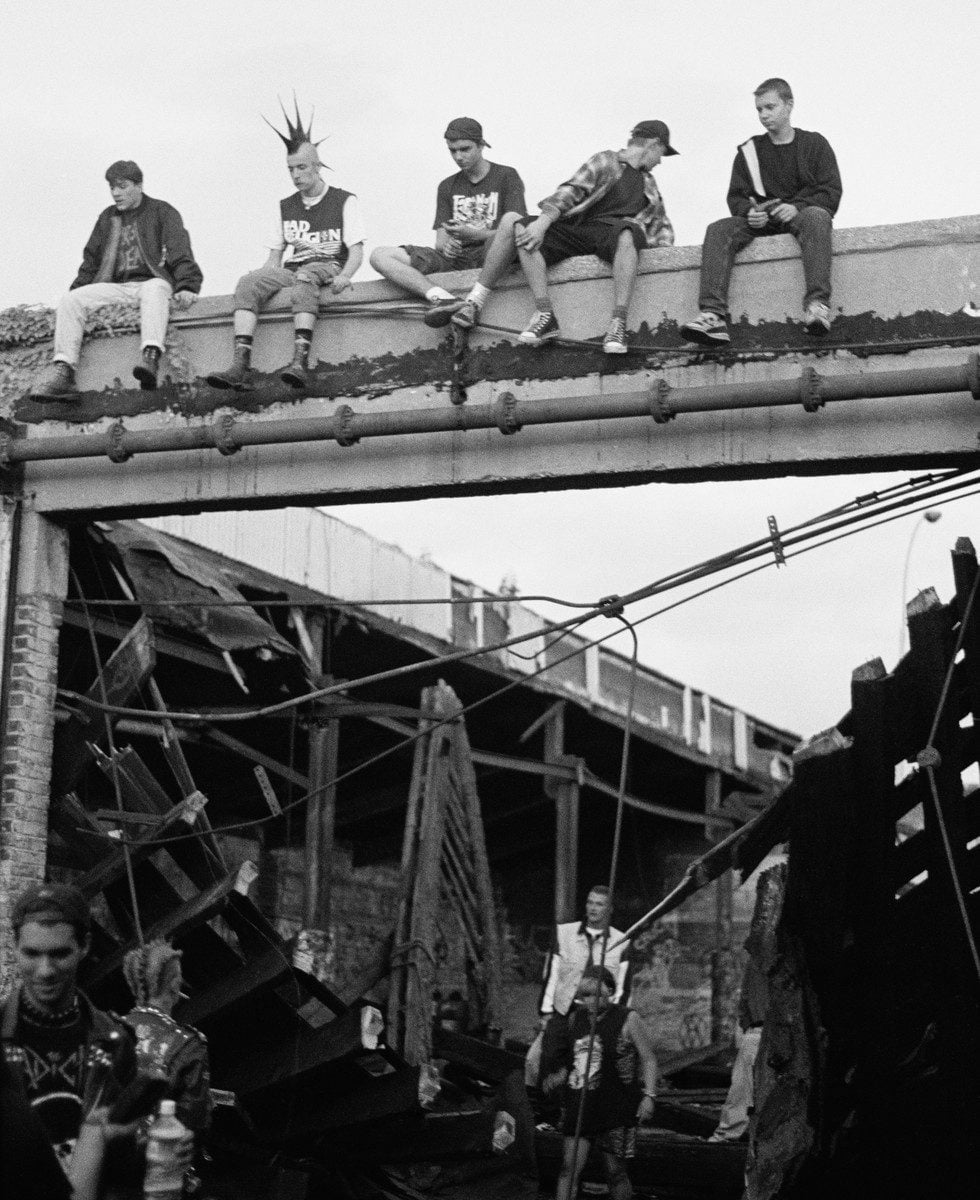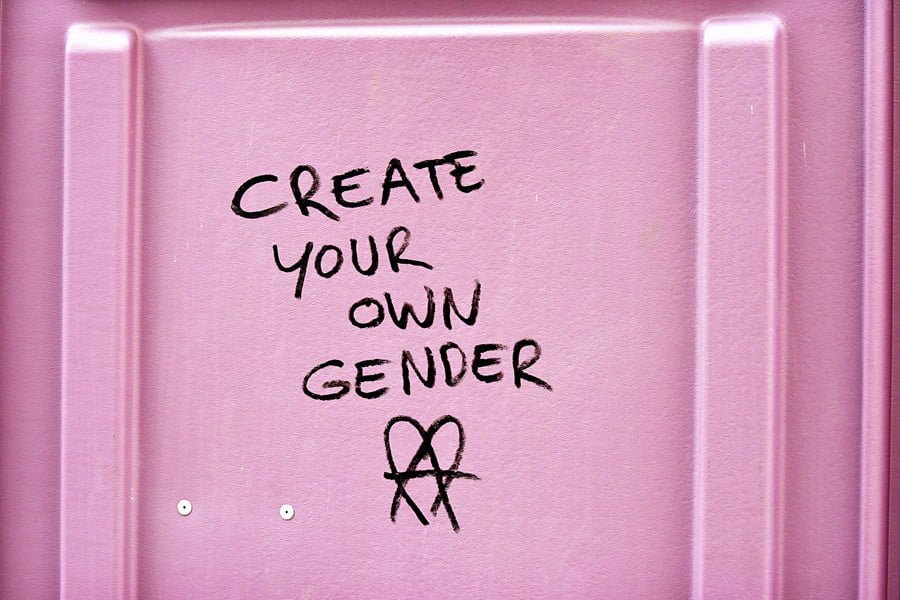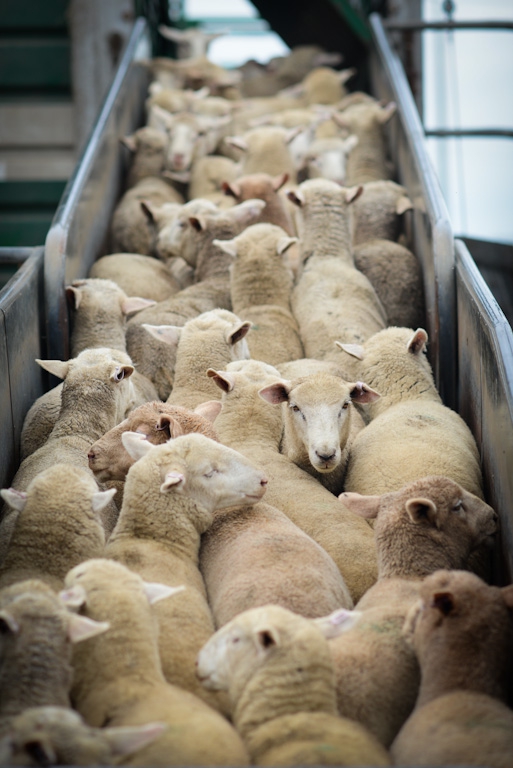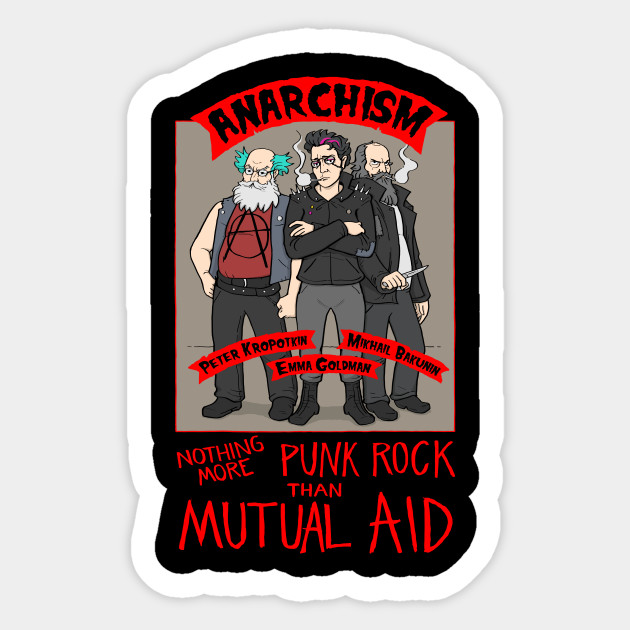Received anonymously via email:
“It is common to hear folks eager to take action but not knowing how to start. It can be daunting to take the step into direct action when you do not have people around you to train you. Yet, direct action has always been rooted into DIY culture, and because of security concerns, people taking direct action don’t normally tend to open up to newcomers. With this short series I want to propose steps to empower yourself into taking action by utilising the concept of anarchist calisthenics, even if it doesn’t necessarily fit the description!
So what is Anarchist Calisthenics? A term coined by James C. Scott explaining that small acts of resistance build the muscles for bigger acts of disobedience. Whilst James proposes a future where we will be forced to fight back, I would say that we are already there, and the need to fight back against oppression is already heavily felt by many. The jaws of the machine are strong, and sometimes it is difficult to feel empowered enough to push back against things that feel extremely oppressive, so anarchist calisthenics proposes a playful training ground where daily acts of insubordination to the status quo gets us more comfortable with the idea of throwing blows back!
Anarchist calisthenics might perhaps not completely fit into how to empower oneself to take direct action for animal liberation, but it gives us a good guideline: start small, with innocuous actions, and build a spirit of continuos resistance through the mundane, so that in the future when you see the big monster of speciesism you are already prepared to punch back, knowing that you can indeed fight with might!
In future parts of the series we will discuss ideas for small acts of resistance against speciesism, but I would like to pose the question to all of you. Without claiming responsibility and incriminating yourself, what small actions can people do to get comfortable with taking action?
Fight back, until we win!”

